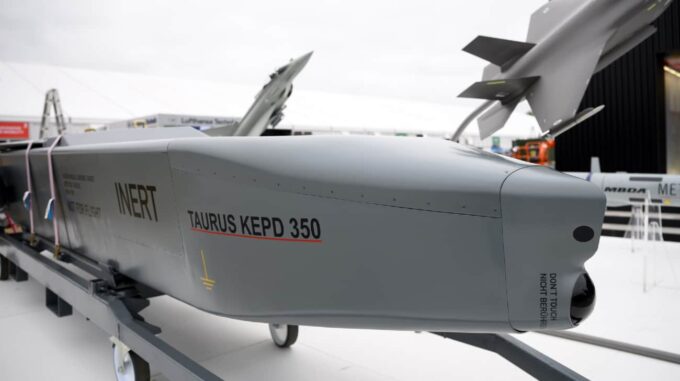In Germany, the tense political debate over supporting Ukraine in the war with Russia is gaining momentum, particularly around the possibility of supplying long-range Taurus missiles

Representatives of the leading political forces, including members of the Conservative Party (CDU/CSU), are increasingly calling for the deployment of Ukrainian military training programs and the transfer of this modern weaponry to Kyiv, viewing it as a potential lever to strengthen Ukrainian defense and reduce civilian casualties. CDU Foreign Policy Spokesperson Roderich Kizewetter urged for the rapid implementation of training programs for Ukrainian soldiers, emphasizing that it is time to start and accelerate the transfer of Taurus systems. According to him, these cruise missiles could significantly impact the frontline situation, having the potential to partially relieve combat pressure and save civilian lives. "If we can deliver a large number of Taurus systems, this will largely reduce the risks for civilians in Ukraine," he stated. These sentiments were loudly supported by Thomas Rehwegamp, head of the Bundestag Defense Committee. He emphasized that Chancellor Friedrich Merz, by lifting earlier restrictions on missile range, "removed one of the main arguments against supplying Taurus." "While it is not yet an official commitment to deliver them, this step cancels previous objections and opens the way for more decisive action," he added. At the same time, Kizewetter noted that Germany has not yet officially supplied long-range weapon systems to Ukraine, and thus this should mainly be viewed as a political signal that has no concrete practical consequences for Kyiv. In his view, it does not change the current situation for the German army and does not significantly alter the policy on arms deliveries. Outside of political circles, activists and opposition deputies are voicing their opinions. For example, Anton Hofreiter of the Green Party consistently supports the idea of supplying Taurus and emphasizes that these missiles can target strategically important Russian objectives in border regions. "Merz’s statements are nothing but political rhetoric unless he delivers Taurus cruise missiles," he argued. A civic activist also adds his voice to the debate, highlighting that the possibility of deploying such missiles would strike at key military targets of the Russians. Meanwhile, discussions continue within the political region regarding the future course of support for Ukraine and efforts to enhance its defense capabilities. It is known that Friedrich Merz previously stated that restrictions on the range of military equipment for Ukraine have been lifted, and it is no longer prohibited to use systems capable of hitting targets in Russia. This means that restrictions on deploying weapons beyond Ukrainian territory have officially been removed, although negotiations about specific deliveries, including Taurus missiles, are still ongoing. The balance between political ambitions and the desire to ensure Ukraine’s security remains tense: some politicians call for swift and decisive actions, while others cautiously monitor possible diplomatic and security risks. However, it is clear that the main political figure—Chancellor Merz—is currently focused on building consensus around gradually increasing military aid to Kyiv, including the potential delivery of Taurus cruise missiles. In this multifaceted political game, the issue of supplying long-range weapons seems to remain a fundamental test of the internal unity of the German political establishment and its stance on supporting Ukraine in its fight for sovereignty and territorial integrity. Equally important will be the role of civic activists, opposition parties, and Western allies, as the future course of the Ukraine-Russia war depends heavily on Berlin’s decisiveness and openness.

